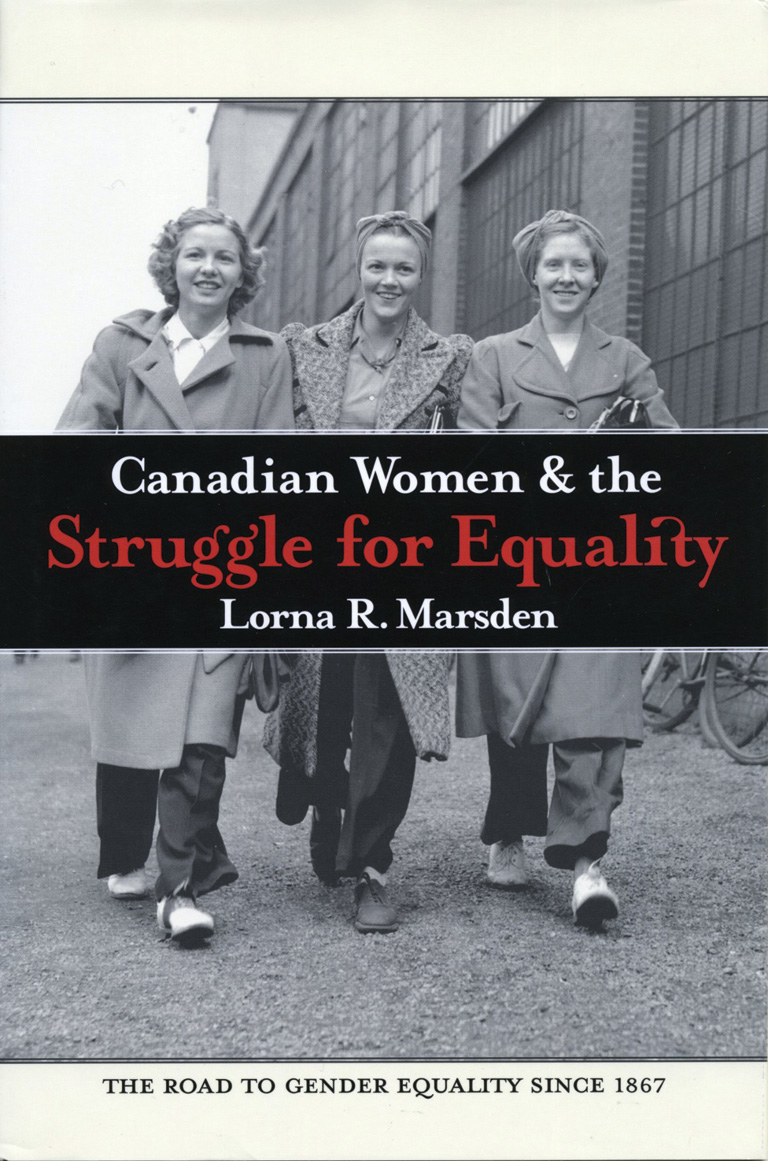Canadian Women and the Struggle for Equality

Canadian Women and the Struggle for Equality
by Lorna Marsden
Oxford University Press
302 pages, $27.95
When Stella Bliss applied for unemployment insurance in 1976, she found that she would not be entitled to benefits for another six weeks. Bliss had just had a baby and was therefore subject to a different section of the Unemployment Insurance Act than her male counterparts.
Bliss challenged the case in the Supreme Court of Canada for discrimination based on sex, but the judge ruled against her, saying that she was treated differently not because she was a woman but because she had been pregnant — a voluntary decision in the eyes of the court. “Any inequality between the sexes in this area is not created by legislation but by nature,” the ruling said.
Bliss’s story is one of many intricate and illuminating cases recounted in Lorna R. Marsden’s book, Canadian Women & the Struggle for Equality. Using what she describes as a sociological approach, Marsden chronicles the women’s movement since Confederation and examines the events, individuals, and institutions that enabled social change.
The Constitution Act of 1867 is central to the story, as Marsden argues that, by granting key powers to the provinces, the constitution made it difficult for women to organize on a national level to advance their cause. Instead, women first made strides in their communities and provinces through clubs, social networks, individual efforts, charitable work, and professional organizations.
Although Marsden doesn’t delve deep into the different forms of feminism or its nuances, her book provides a good introduction and overview of women’s achievements since Confederation. Canadian Women & the Struggle for Equality shows that the road to social equality is lengthy, has involved many commendable acts, and is full of loopholes.
Themes associated with this article
Advertisement




